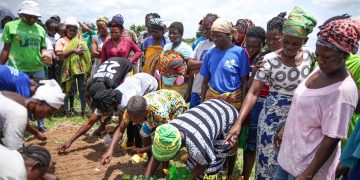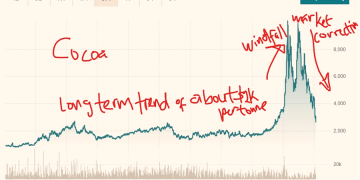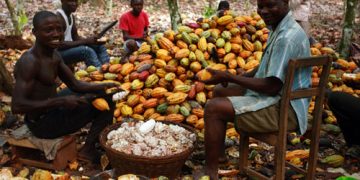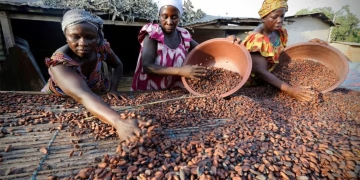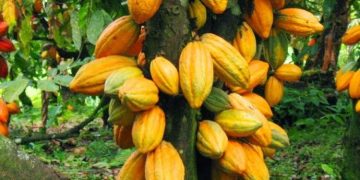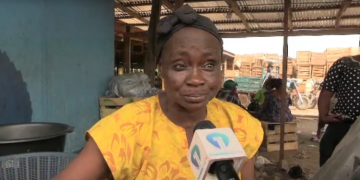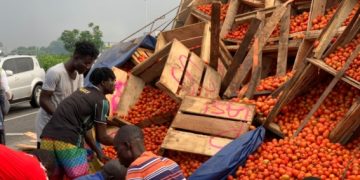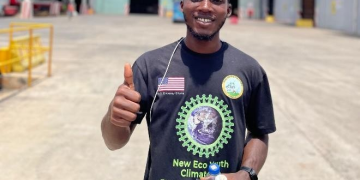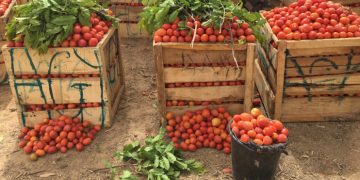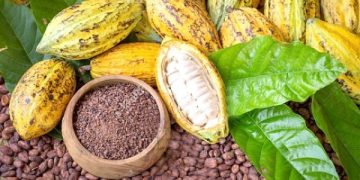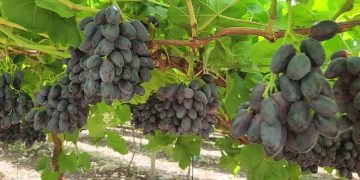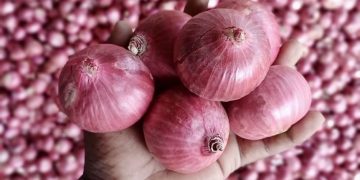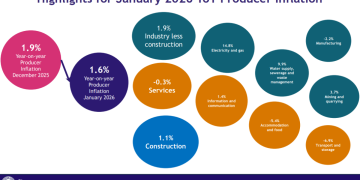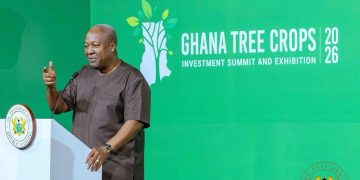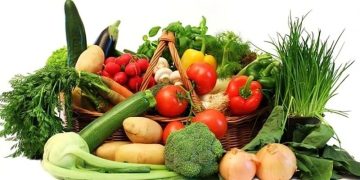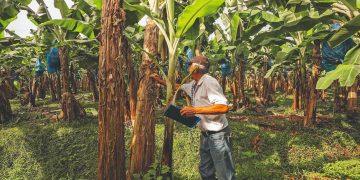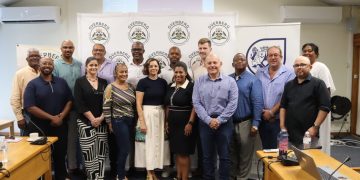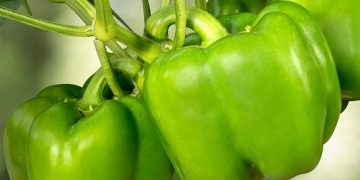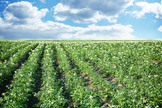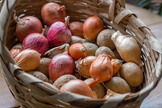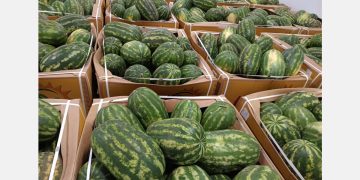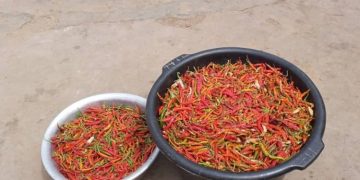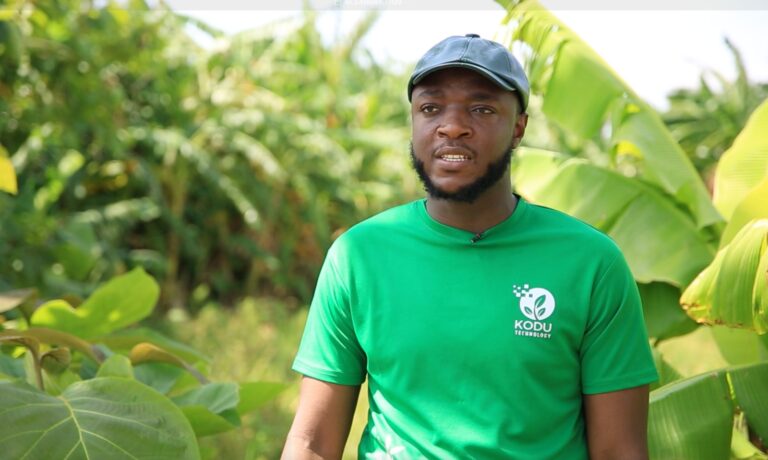In Ghana’s Northern Region, a bold and inspiring enterprise is changing the way the world thinks about agricultural waste and menstrual health. Kodu Technology, a dynamic and socially driven startup, is turning discarded banana and plantain waste into affordable, eco-friendly sanitary pads which is restoring dignity to young women while boosting incomes for smallholder farmers.
At the helm is Dr. Iddie Mohammed Faried, a visionary scientist and entrepreneur who co-founded Kodu Technology with a mission to solve multiple challenges at once: period poverty, environmental degradation, and rural poverty.
“My team and I visited Gbulahagu in the Northern Region of Ghana. We wanted to figure out what farmers do with their wasted resources. So that’s when we found a young lady who is the daughter to one of our farmers. According to her, anytime she’s in her period, she stays at home instead of being in school due to her inability to afford menstrual hygiene products,” Dr. Faried recalls.
That encounter inspired them to set up Kodu Technology. “So, my team and I came up with Kodu Pads, a sanitary pad made from banana and plantain waste and it’s fully certified by the Food and Drug Authority and the Ghana Standards Authority,” he said. The processed banana and plantain fibers are cost-effective, and offer a sustainable alternative to imported, plastic-heavy products, while making a powerful social impact.
Game-changing support
A major turning point in Kodu Technology’s growth came when it received a $50,000 catalytic grant from AGRA as winner of the 2024 Gogettaz Agripreneur Prize Competition. The prize is awarded to young African entrepreneurs who have launched scalable, impact-driven businesses in the agrifood sector, exposing them to mentorship, and financial support to scale their ventures. That strategic support helped the company double its production capacity, paving the way for broader distribution and deeper impact.
“AGRA has been quite helpful to us.
AGRA impacted $50,000 to Kodu Technology and this has helped move our production to about 100%. And what that means is that more young women are going to benefit from our impact,” Dr. Faried said. With expanded production, more girls now have access to safe menstrual products, and more farmers are earning income from materials that would otherwise be thrown away.
Creating hope and opportunity
The results are already visible. Teachers, midwives, and farmers alike are praising Kodu Pads for their affordability and life-changing impact. “Kodu Pad is a very good initiative. It’s eco-friendly and it has helped a lot of girls in my community. For instance, I would say one in 10 girls in Ghana are not able to go to school due to their inability to purchase pad. But then since the introduction of Kodu Pad, they all have been able to purchase one. And then the stigma around menstruation has reduced due to the low cost of Kodu Pad,” says Bawa Aisha, a local teacher.
Midwife Mahama Guma Adidjatu says Kodu Pads are affordable and offers vast health benefits for females. “Young women and adolescents use rugs, thorn clothing, papers and all sorts of things. Which at the end of the day, it has a health risk on them because some of them come in with infections… But I think with Kodu Technology, the cost is affordable and reliable,” she says.
A business model rooted in sustainability
Beyond its social impact, Kodu Technology is revolutionizing how agricultural waste is valued. Farmers who once burned or buried banana and plantain tree waste now sell them to Kodu for processing, gaining a new source of reliable income. “We give farmers incentives for their waste,” Dr. Faried explains. “This aligns us with the UN Sustainable Development Goals One and Two on Zero Hunger and No Poverty,” he added.
SOURCE: DAILY AGRIC

